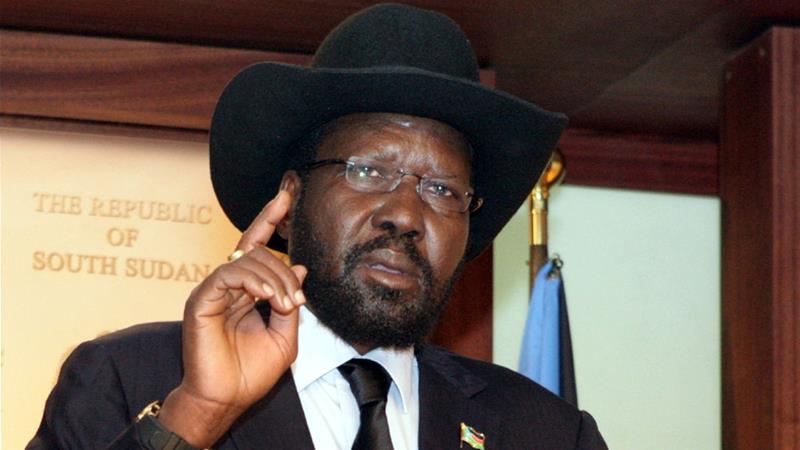South Sudan’s civil war rages on
September 30, 2018 | Expert Insights

A new report from the US State Department estimates that more than 380,000 people in South Sudan have died in the civil war so far.
The new report does not include the millions which have fled South Sudan or the deaths from unhygienic conditions in the country.
Background
South Sudan is a landlocked country in East-Central Africa. The country gained its independence from Sudan in 2011, making it the newest country with widespread recognition. Its capital and largest city is Juba. South Sudan has suffered ethnic violence and has been in a civil war since 2013. In December 2013, a political power struggle broke out between President Kiir and his former deputy Riek Machar, as the president accused Machar and ten others of attempting a coup d'état. The two have been at the opposite ends of two warring factions ever since.
Since the start of the conflict, almost 2 million people have been internally displaced, and another 2 million have sought refuge in neighbouring countries, with 1 million in Uganda alone. More than 230,000 people are sheltering in six United Nations bases located in towns across the country. Famine was declared in conflict-affected areas in the former Unity state in the first half of this year.
In 2014, one of the worst massacres took place in the nation. An attack in the town of Bentiu, in the north of South Sudan, left nearly 400 dead as a result. UN human rights investigators said that after rebels wrested Bentiu from government forces in heavy battles, the gunmen spent two days hunting down those who they believed opposed them.
Read more about our extensive analysis on the ongoing South Sudanese civil war here.
Analysis
Years of brutal civil war in South Sudan have left at least 382,000 people dead, according to an estimate in a new State Department-funded study that far surpasses an earlier figure issued by the United Nations and points to the horrors of an often-overlooked conflict.
The findings of the study, conducted by a small team at the London School of Hygiene and Tropical Medicine but commissioned by the U.S. Institute for Peace in partnership with the State Department
The country broke away from Sudan seven years ago, after decades of deadly conflict that eventually led to shaky independence. But South Sudan soon fell back into war, after a rivalry between President Salva Kiir, from the Dinka ethnic group, and then-Vice President Riek Machar, a Nuer, turned violent.
The conflict started in Juba, the capital, and spread across the country. Journalists, human rights researchers and humanitarian workers have collected evidence of mass atrocities committed by both sides in the conflict, but rights groups say most attacks on civilians have been carried out by government troops. In some areas, entire villages were said to have been razed. Women were allegedly raped and children burned alive, and some families even reported forced cannibalism.
The conflict has prompted a refugee crisis in the region: More than 1 million South Sudanese have fled to neighbouring Uganda, and many others crossed into Sudan and Kenya. About two million are displaced within the country.
More than 14,500 U.N. peacekeepers are deployed to the country, and the mission there cost the United Nations just over $1.1 billion in the last fiscal year.
Counterpoint
Counting the dead is a challenge in war zones, where many people are displaced and crucial data is hard to come by. In South Sudan, a number of factors, including the dangerous nature of the conflict, have made calculating the death toll through a national survey and interviews with families nearly impossible.
By comparison, the new estimate puts the death toll from the violence in South Sudan on par with the conflicts in Syria, where upward of 510,000 people are believed to have died in a significantly larger population. Gordon Buay, deputy chief of mission at the South Sudanese Embassy in Washington, said he thinks the estimate is “not accurate.” He said he would put the death toll at fewer than 20,000 people.
Assessment
Our assessment is that the talks between the South Sudanese President Salva Kir and the rebel leader Riek Machar are the only way to end the civil war. The war has triggered the biggest displacement in Africa since the Rwandan genocide in 1994. We believe that despite UN peacekeepers in South Sudan, the conflict will continue until both leaders reach an amicable agreement.








Comments